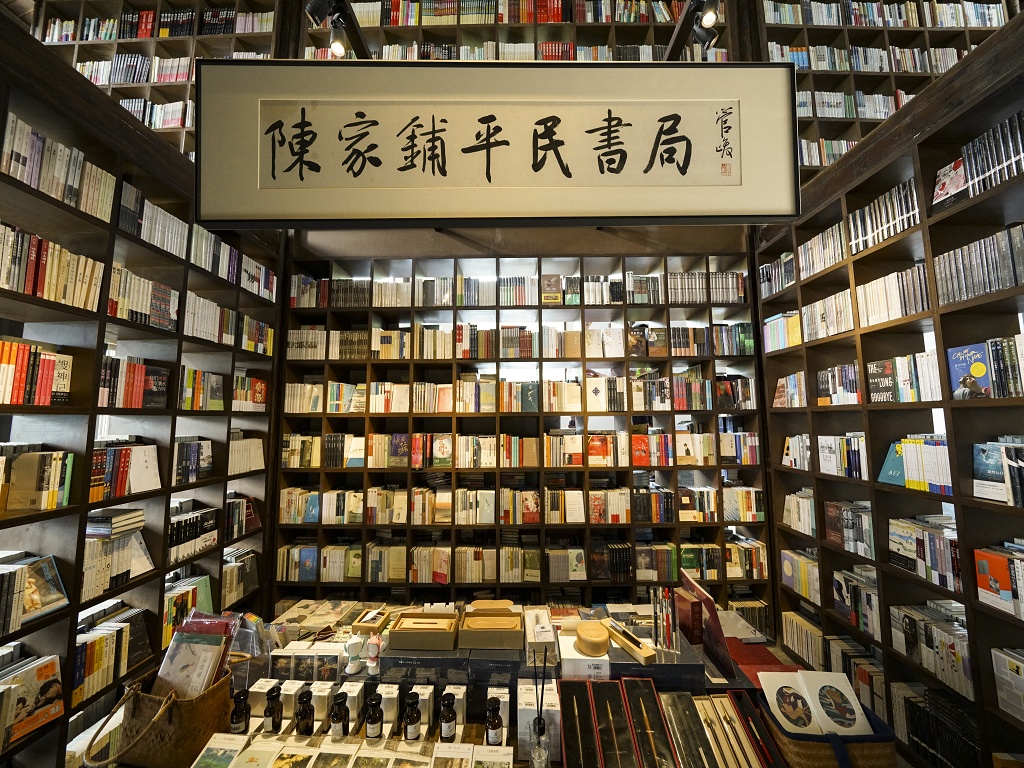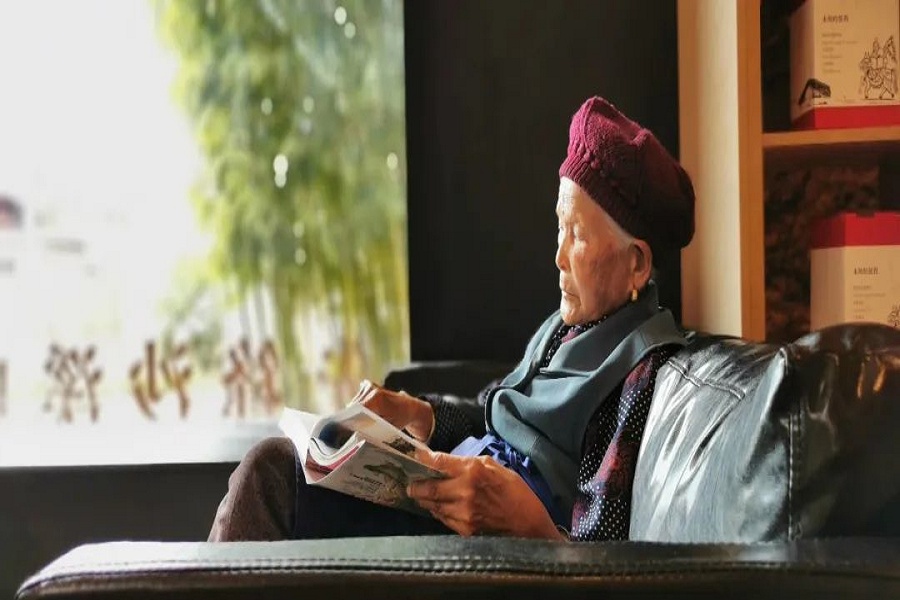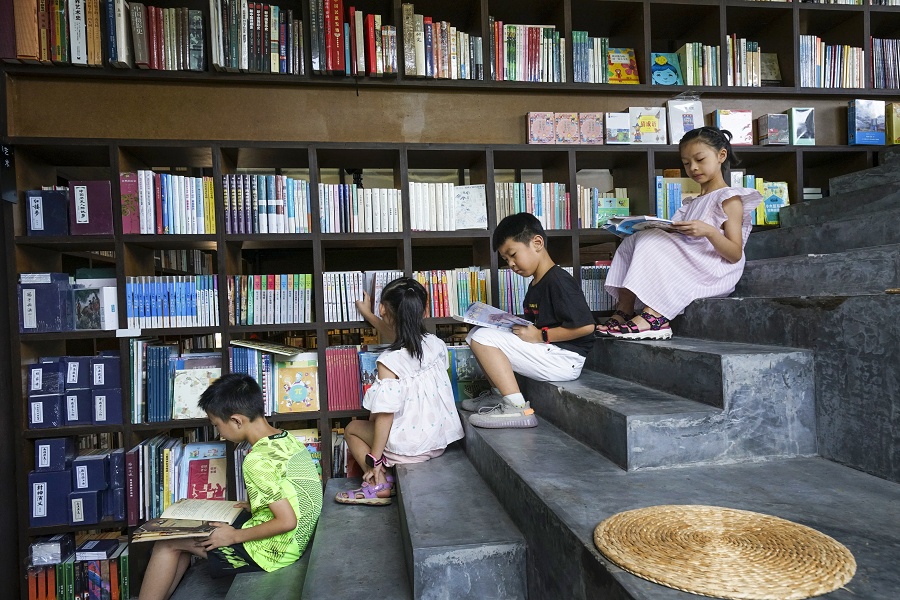Quiet Cultural Penetration: Bookstore Boom in China’s Rural Areas

Traditional Chinese rural society has sustained for thousands of years with farming civilization. With the progress of industrialization and the acceleration of urbanization, many young people have chosen to move away from rural areas, leaving those places with diminishing cultural vitality. However, in recent years, internet-famous bookstores from urban areas have mushroomed in the countryside, becoming a vibrant cultural sight.
A soul-awakening cultural experiment is quietly sweeping across China’s rural areas.
Aesthetic Bookshops
Contrasting the humble facilities of their predecessors, the latest countryside bookstores have stunning appearances. The Chenjiapu Civilian Bookstore under the famous bookstore brand Librairie Avant-Garde (LAG), for example, was cited as the “Most Beautiful Bookstore of the Year” by the Books and Periodicals Distribution Association of China in 2018. It is located in an ancient village in Songyang County, Lishui City, Zhejiang Province. Architect Zhang Lei transformed the village’s old auditorium into a modern bookstore. Through its windows, visitors can gaze at boundless terraced fields, bamboo forests, ancient trees, and rolling mountains. “Sitting in this bookstore is like being part of a landscape painting,” said Bao Genyu, who served as the village’s Party chief for 24 years.
Other rural bookstores operated by LAG were crafted with just as much imagination, including the Bishan Bookstore transformed from an ancient ancestral hall in Anhui Province, the Windail Library opened in the traditional residences of the She ethnic group in Zhejiang Province, and the Xiadi Paddy Field Bookstore surrounded by rice fields in Fujian Province.
What books do they sell? Titles on agricultural technology, breeding, medicine, and healthcare to meet the most basic needs of farmers? Obviously not. The Bishan Bookstore, for example, prioritizes books themed on the history and culture of ancient Huizhou, rural development, and education. It collects rare and old books and documents about Huizhou on its second floor. Some rural bookstores of LAG also set up children’s sections filled with picture books and borrowing departments with selected books suitable for farmers and left-behind children.

The Chenjiapu Civilian Bookstore is located in an ancient village, engulfed by mountains, in Songyang County, Lishui City, Zhejiang Province. (Photo by Mao Jinjun)
Survival of Rural Bookstores
According to the China Physical Bookstore Industry Report 2020-2021, 4,061 new bookstores opened while 1,573 bookstores were closed in China in 2020. Obviously, since there looms a risk of bankruptcy for bookstores in hectic cities, one may wonder whether they can survive in remote villages.
“Since its opening in May 2020, the revenues and profits of our Shaxi Bai Ethnic Bookstore have easily met all expectations even amid the COVID-19 epidemic,” said Liu Yating, manager of the bookstore, born in the 1990s.
Liu noted the steady stream of customers, including tourists, LAG fans, and local villagers, is supported by the bookstore’s prime location in the scenic area of Shaxi Ancient Town in Dali, Yunnan Province. “Regarding revenue sources, the ratio of cultural and creative products, books, and coffee is 3:2:1 on average,” revealed Liu.
Alongside sales of books, coffee, and cultural and creative products, support from local governments also contributes to the sustainable development of rural bookstores. Optimistic about the outlook of the Chenjiapu Civilian Bookstore in Songyang County, the local government invested funds to support construction of staff dormitories and a writing center with nominal rental fees.
However, Liu is more concerned about how to make the rural bookstore firmly rooted culturally following its profitable performance.
“I noticed some villagers perceive the bookstore as too elegant,” she said. “They behave quite restrained and shy inside, unable to feel at home because they worry about making it dirty. Unlike their confident urban counterparts, village readers do not naturally consider bookstores as public spaces.”
Liu is currently working to minimize the distance between the bookstore and villagers. “Fortunately, since the Shaxi Bai Ethnic Bookstore is located in an old granary which was formerly used as a public space, local people are familiar with the location,” she said.
Rural bookstores can be integrated into the local environment via architectural practices, but penetrating the spiritual world of villagers, a common issue nowadays, requires more efforts.

Local elderly Bai grandma enjoys reading at the Shaxi Bai Ethnic Bookstore. (Photos courtesy of Librairie Avant-Garde)
Hopeful Smell of Books
The popularity of rural bookstores reflects a deep pastoral pursuit and deep concern for the development of rural areas and Chinese society at large, opined Qian Xiaohua, founder of LAG. “Cultural power must be injected to prevent the countryside from falling into a ‘hollow’ state.”
Architect Zhang Lei was happy to see the rural bookstores he designed inspire local changes. Their mounting popularity attracts surrounding urban residents to villages, thus injecting vitality into local development.
“Before construction of the Chenjiapu Civilian Bookstore, Chenjiapu Village was ‘hollow,’ but now numerous tourists visit,” said Zhang. “Previously, Daijiashan was a small village flanked by mountains with only 40-plus households. Before the Windail Library opened in the village five years ago, there was only one rural hotel. But now, the local homestay industry has developed to involve more than 20 households.”

Children read in the Chenjiapu Civilian Bookstore. (Photo by Mao Jinjun)
When the weather is pleasant, Liu Yating enjoys the mountain scenery through the wooden windows of the Poetry Cafe of Shaxi Bai Ethnic Bookstore. Local children like to do their homework there after school. Seeing these adorable, happy children, she feels her own life brighter. “Whatever you think, a bookstore opening here fosters hopes for the village,” she said.